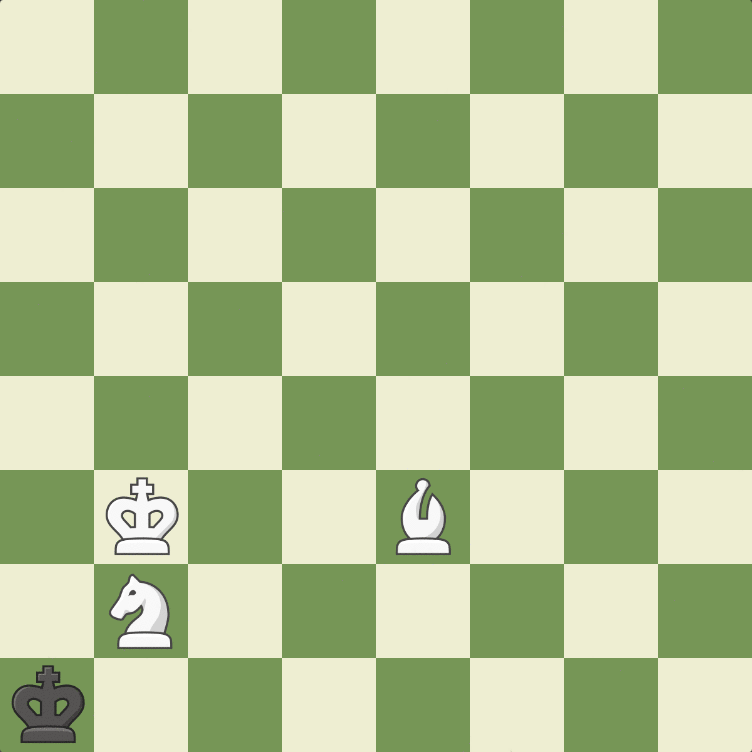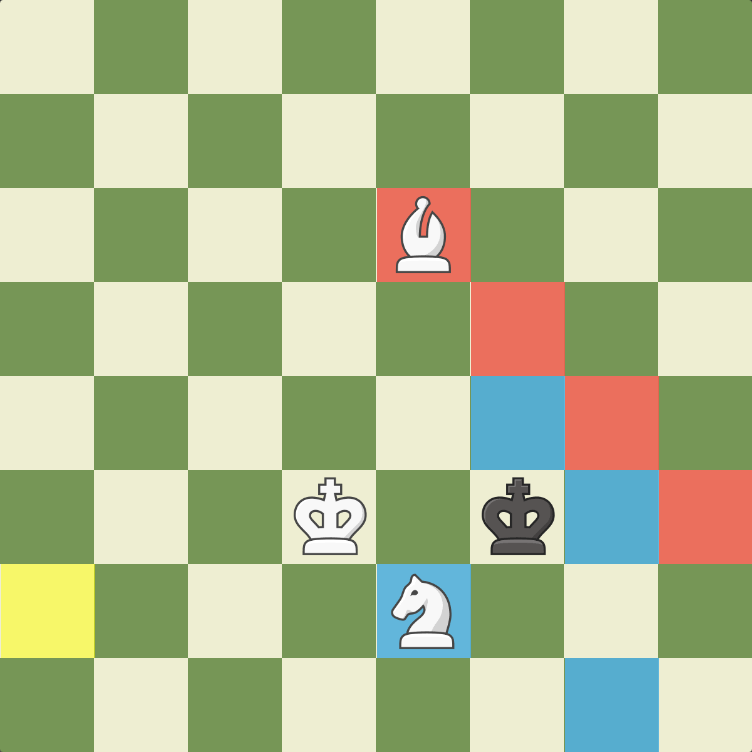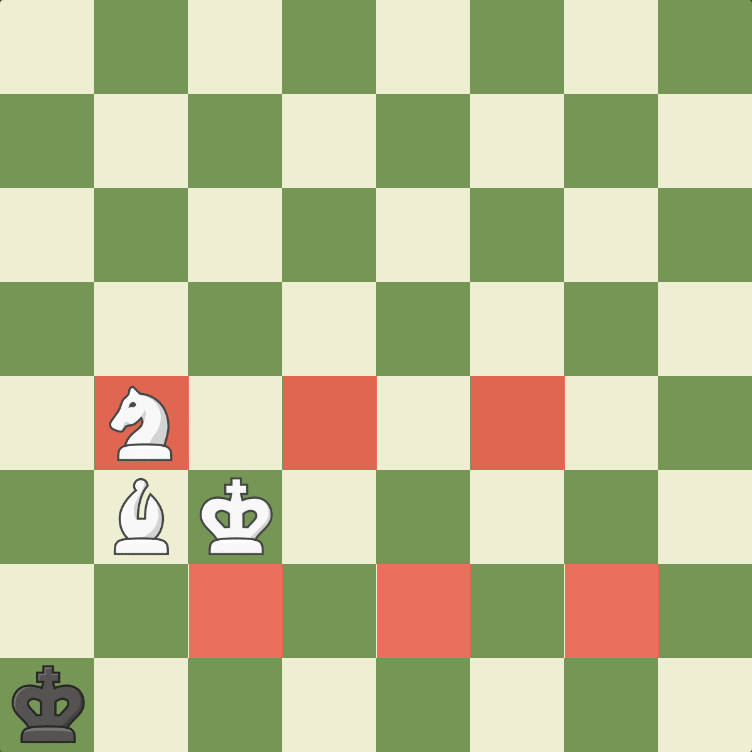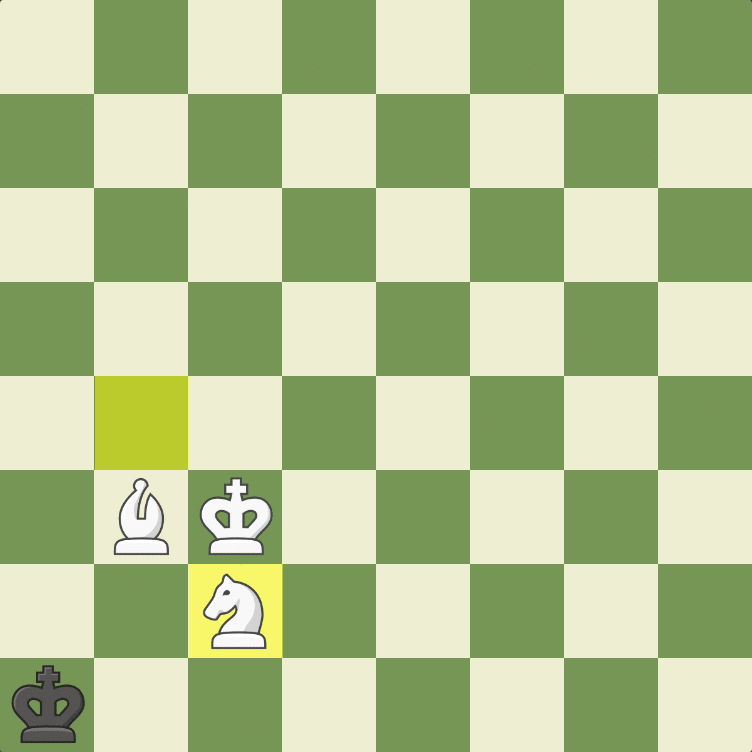
Checkmate With Bishop And Knight
The bishop and knight checkmate is one of the most difficult and skillful checkmating patterns in chess. Even grandmasters have failed to win a game with only these pieces remaining.
Here is what you need to know about this type of checkmate:
- What Is The Bishop And Knight Checkmate?
- Why Is The Bishop And Knight Checkmate Important?
- How To Deliver A Bishop And Knight Checkmate
- Test Your Skills
- Conclusion
What Is The Bishop And Knight Checkmate?
The bishop and knight checkmate is one of the most advanced checkmating patterns in chess. Players can deliver this checkmate by forcing their opponent's king to the corner of the board that matches the color of their bishop.

Why Is The Bishop And Knight Checkmate Important?
Although it is not usual for this mating pattern to occur, it is important that you know how to win with it. This pattern is not simple, so if you are not familiar with the way it works, you probably cannot discover it during a game.
This checkmate demands that the knight and the bishop work together flawlessly. Learning how to wield your pieces with such coordination helps you to become a better player overall.
How To Deliver A Bishop And Knight Checkmate
Now that you know why you should learn this checkmate, it is time to learn how to win with it. You can reach a checkmate in a few ways with these pieces, but this article teaches you a pattern that is very easy to remember.
Understanding Your Final Goal
The first step is to understand what your final goal is: you want to force the enemy king into a corner that matches your bishop's color. Doing so is critical because the bishop needs to deliver the final blow. Here is the final sequence of moves you have to perform to mate your opponent.

Knowing that is your goal, your opponent will do everything in their power to prevent you from reaching it. They will attempt to keep their king in the center of the board or the opposite corner of the one where you are trying to take them. Let's assume you can force their king to a corner successfully, but they run to the one that does not match your bishop's color.

After you reach this position, you are ready to start employing the mating pattern. Your goal now is to push the opposing king to the other corner of this row on the board.
Understanding Key Principles Of This Checkmate
Before we start, it helps if you keep a few points in mind.
The most important aspect of this checkmate is that your pieces must coordinate perfectly to trap the enemy king. Especially noteworthy is the fact that while the bishop always controls the squares of one color, the knight controls the other. This feature allows this checkmate to happen, and understanding it is pivotal to making sense of the moves you have to play.

A couple of tips can help you to achieve such coordination for this mating pattern. The first is that your knight always moves in a V-shape except on its last move.

The second point you should remember is that the knight almost always leads the way. When you are pushing the enemy king to the other side, the knight usually jumps first, followed by the king, and only then the bishop.

Performing The Pattern
Now that you understand your final goal and the fundamental concepts of this checkmating pattern, it is time to learn the moves you need to play. The image below shows the starting position you need to reach.

After you have reached that position, you are ready to continue. As you see the pattern unfolding below, notice how the principles mentioned above are applied. Note also how the white pieces work together to force the black king to the other side of the board.

This pattern seems very complicated, but once you understand how to combine the strengths of your bishop, knight, and king, you can easily find the right moves.
If you want a more in-depth analysis of this checkmate, review the diagram below. In it, you can find many of the possible variations that your opponent can try to use to confuse you.
As you can see, if you know how to deliver mate, there is no way for your opponent to escape.
Test Your Skills
Now that you have seen how to deliver this complicated checkmate, it is time for you to practice doing it yourself. Solve the puzzles below with the correct move to keep pushing your enemy king to its end.
Puzzle 1: White is trying to get away from your grip. How can you stop their plan?
Puzzle 2: It looks like Black is escaping from your clutches. Is there any way you can keep them from running away?
Conclusion
You now know how to coordinate your king, bishop, and knight with precision to deliver a checkmate! Try our premium membership for free and head over to our Drills page to practice this and other mating patterns.







